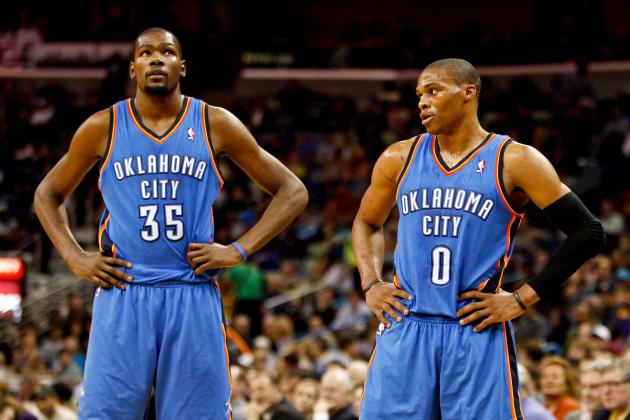One of the most common fallacies to which humans fall prey is “reductionism.” (Its more formal title is “The Fallacy of Division.”) In committing this fallacy, one essentially assumes that what is true of a larger entity must be true for the individual parts of which that entity consists. For instance, a cultural stereotype is an instance of reductionism. The assumption that all Republicans are opposed to gay marriage? Reductive. All Democrats are opposed to guns? Reductive. All FantasyLabs writers are good-looking fellows? Well, that one’s actually true.
This is the 10th installment of The Labyrinthian, a series dedicated to exploring random fields of knowledge in order to give you unordinary theoretical, philosophical, strategic, and/or often rambling guidance on daily fantasy sports. Consult the introductory piece to the series for further explanation on what you are reading.
It’s Not Spelled Like the Capital of Texas
A few different roads can lead to the village of Reductiveville. For instance, let’s pretend that you’re a college student taking a British literature survey and the professor gives you a list of themes, narrative devices, and character types that typify Jane Austen’s works. Now, if you automatically assumed that every Austen novel deals with young women looking to marry . . .
Bad example.
The Grocery Store and the Hospital
Sometimes the general assumptions we make are valid. A lot of times, they’re not. It depends on the particular assumptions that one makes.
For instance, let’s assume that in Reductiveville the local grocery store and hospital are right next to each other. If I told you that one of these establishments sold great sandwiches, you might assume that I’m talking about the grocery store, since prepared food is often available at grocery stores and hospital cafeterias often have food that sucks. That assumption might be safe, especially because it would’ve been made on the basis of data: Our experiences of being in grocery stores and hospitals.
If, though, I told you that the people who spend at least 20 hours per week in the grocery store collectively have 40 years left to live per person, whereas the people who spend 20 hours per week in the hospital have only 30 years of life left per person, and then you assumed that the average person in the hospital was unhealthy and destined to die relatively soon, that would be an assumption you probably shouldn’t make, since the hospital not only houses terminal patients but also employs healthcare professionals, many of whom could be relatively young and vibrant. In this example, if you made negative assumptions about the average person to be in the hospital for at least 20 hours per week, you were being reductive.
Unless you’re my mother — and you’re not, because she doesn’t read my pieces and/or even use the internet (she’s basically a Jane Austen character living in Texas) — when you’re reductive it’s usually for the sake of making negative assumptions.
Sometimes, these negative assumptions don’t hurt you, because they keep you away from situations that turn out to be bad (due to factors you don’t take into account). In these instances, though, you aren’t actually making good decisions. You’re just lucky.
Other times, negative assumptions are extremely detrimental, because they prevent you from taking advantage of opportunities that have positive outcomes (again, due to factors you don’t take into account). In these instances, the opportunity cost of not capitalizing on available opportunities can be enormous, since it is often in the seemingly negative situations that great value can be found.
The Big-Spread, Non-Expensive Underdog Point Guards
If you have negative assumptions, the key is not simply to live with them. The key is to test them so that you can be sure you aren’t being fallaciously reductive. For instance, in DFS you might assume that the NBA players on a team that is at least a 10-point underdog are poor plays. If, however, you look at our Trends tool, you’ll find the opposite to be true:
In assuming that individual players will underperform merely because their team is expected to underperform, one is falling back on the reductive fallacy.
In fact, once one breaks an assumption, the best course of action is not merely to say, “Oh, I was wrong.” Rather, one should explore how one erred. One should explore the scenario to find if there are deeper ways in which one erred. The benefit of doing so is not just that one attains greater knowledge and a more open mind. The true payoff is that if one made a mistake it’s possible that many other people make that same mistake, and if one finds hidden truth that most people overlook than that truth (we’ll call it a trend) could be exploited to great profit.
For instance, once we find that big-spread underdogs have players who historically return value, we might want to look next at positional breakdown. Are there certain positions that do better than others in this scenario?
Yes, as it turns out, point guards do exceedingly well and are the only position to exceed 50 percent consistency. Does it make sense that point guards would outperform their teammates when they are big underdogs? I think so.
If a team is a big underdog, the point guards might play at a faster pace, especially deeper in the game, if/when they are losing. Also, to ensure that their offense takes shots quickly, point guards might shoot more than they otherwise would, perhaps opting for attempts in situations in which they typically would pass. Finally, at the end of such games, point guards might be likelier to face defenders who are less motivated than they usually are to impede their paths to the basket and prevent shots.
If we think through the trend, it makes sense that point guards on big-spread underdogs would outperform expectations by +1.13 Plus/Minus.
Additionally, at this point we might want to think about the type of point guards who would best be used with this trend in mind. For instance, if a guy is expensive, he is going to receive attention in his slate anyway, and people might be likelier to overlook his big-spread, underdog status. Likewise, looking at minimum salary third-string point guards who probably won’t play much is also unlikely to be beneficial.
So what if we look only at the big-spread underdog point guards with salaries between $3100 and $7000?
Jackpot.
Driving Hard to the Hole
Again, it’s common for us to assign an attribute of the whole to the part — but at times that reductive logical move can be a big mistake. When you do that in DFS, you miss out on the opportunity to roster players who add strong value to your lineups.
With their consistency, big-spread, non-expensive underdog point guards could be great sources of salary relief in cash games. And given that in tournaments people might be predisposed to fade these players because of their “limited upside,” in large slates you might be able to find a couple of them you really like and then you could roster them both as a means of creating unique lineups.
Making decisions based on reductionism is bad practice, because reductionism is nothing other than a potential trend that one hasn’t backtested yet. Reductionism is the result of lazy thinking and a lack of number crunching.
Reductionism is the denial of uniqueness — in others (such as NBA players) and, more importantly, ourselves.
———
The Labyrinthian: 2016, 10
If you have suggestions on material I should know about or even write about in a future Labyrinthian, please contact me via email, [email protected], or Twitter @MattFtheOracle.








